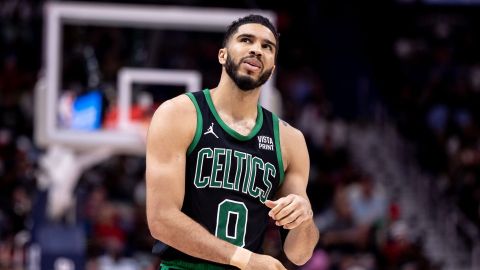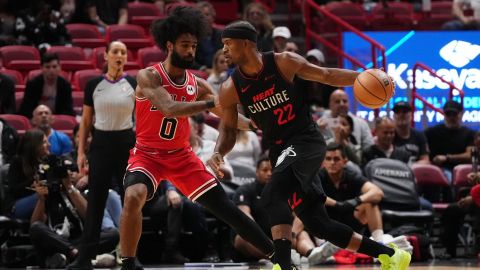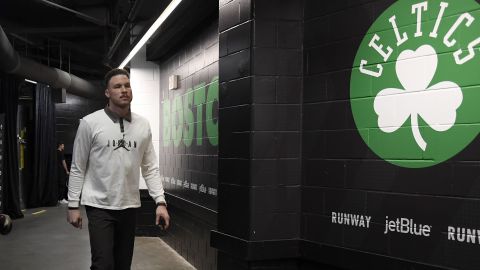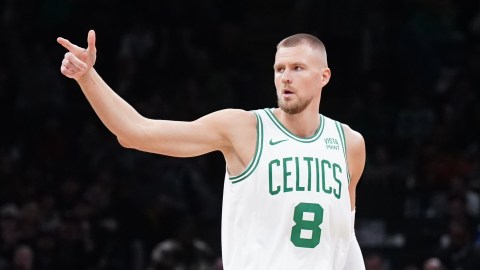 Just how bad the Celtics will be this season is subject to debate. The good news for their fans, however, is that the team might not need to remain in a state of mediocrity for very long.
Just how bad the Celtics will be this season is subject to debate. The good news for their fans, however, is that the team might not need to remain in a state of mediocrity for very long.
Immediately after the deal was disclosed to send Paul Pierce, Kevin Garnett and Jason Terry to Brooklyn, the knee-jerk reaction was that the Celtics would absolutely stink in 2013-14. Jeff Green, Jared Sullinger and a few other remaining Celtics players countered that their talent and pride would not allow that to happen. Other observers, like yours truly, believe the Celtics’ actual fate lies somewhere in the middle.
Even if the Celtics do completely go into the tank — which is not the same as “tanking,” to be clear — the Green Team could be back in championship contention by 2016, if they play the payroll game right.
Brett Pollakoff at ProBasketballTalk, with a big assist from Larry Coon, the foremost expert on the NBA’s collective bargaining agreement, points out that the “repeater” luxury tax penalty due to take effect next season may actually benefit big-market teams. Namely, the Celtics.
Contrary to the owners’ stated contention that the repeater tax is about protecting small-market clubs, richer teams like the Nets have shown zero regard for the supposedly prohibitive cost of exceeding the luxury tax line year after year. Some big-market teams, like the Celtics and Lakers, are entering phases in which their rebuilding process could set them up to exceed the tax line for three straight years without receiving the harshest penalties.
“Starting in 2016, a team is a repeater if they were taxpayers in any three of the previous four seasons [for 2016, that’d be 2011-12 through 2014-15],” Coon writes. “That means any team that was a taxpayer in either 2012 or 2013 would be a repeater if they are a taxpayer in both 2014 and 2015. Most teams will be able to avoid the repeater penalty. A few teams, like Brooklyn, probably won’t care.
“The system is set up — well, ‘set up’ is probably a bad way to put it. I don’t think they did it intentionally — so that two years out of the tax buys you three years IN the tax without being a repeater. I think many teams will adopt this strategy.”
One of those teams, Pollakoff assumes, will be the Celtics.
“Take a team like the Celtics, for instance, who had no problem committing to payroll that would put them over the tax threshold when they were trying to contend for a title over the last few seasons,” Pollakoff writes. “They’re rebuilding this year and next at minimum, but after those two years out of the tax, they could add free agents and load up for another run at the title by spending whatever it costs for the next three seasons, all the while avoiding the dreaded repeater tax.”
To be sure, the Celtics would not avoid paying the luxury tax altogether, only the “repeater” tax that can be as much as $4.75 per dollar over the tax line. Which players will be available in the summer of 2016 is anyone’s guess. Kyrie Irving, Roy Hibbert and Kevin Durant could be free agents then — or not, if the Cavaliers, Pacers and Thunder, respectively, are smart enough to sign them to extensions ahead of time.
Still, this is an intriguing possibility, especially considering the glut of draft picks the Celtics will have available to execute sign-and-trades, and given the quick turnaround in 2007, when the Celtics made a champion out of a seemingly hopeless situation in the span of a month.
Have a question for Ben Watanabe? Send it to him via Twitter at @BenjeeBallgame or send it here.



